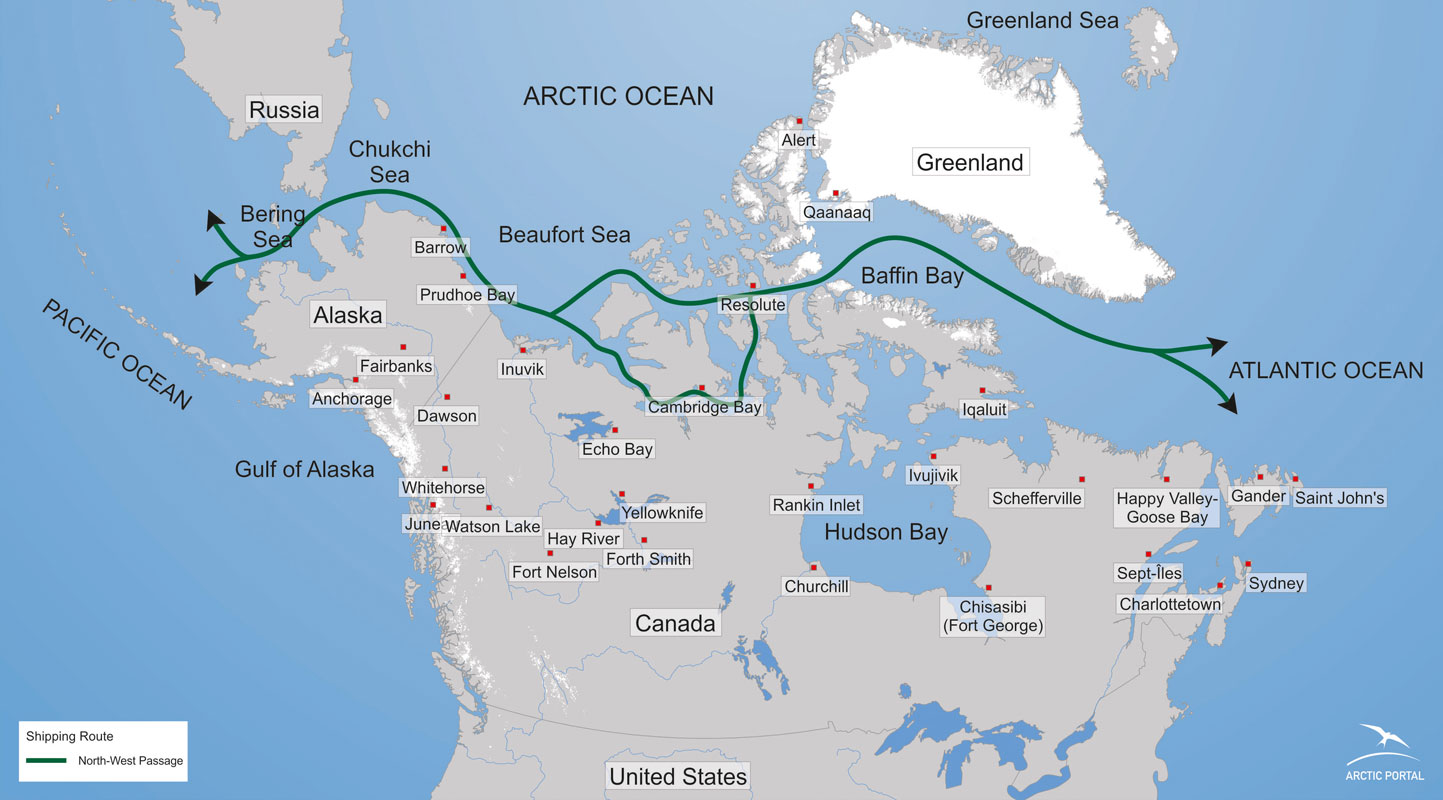Part
01
of one
Part
01
Who stands to benefit the most from climate change?
Key Takeaways
- Climate change can potentially boost shipping commerce and agriculture production, and reduce winter deaths.
- Even though melting ice sheets in the Arctic present challenges to biodiversity and indigenous communities, it offers economic opportunities through the "opening of the Northwest Passage for longer periods in the year due to the loss of Arctic sea ice."
- In West Africa, rice production can benefit from climate change due to the subregion's rich soil and abundant water supply.
Introduction
Shipping commerce, agricultural productivity, and reduced winter deaths are potential benefits associated with climate change. We have presented our findings and research strategy below.
Shipping Commerce
- According to the Organization for Economic Co-operation and Development, shipping commerce or ocean shipment accounts for over 90% of goods traded internationally by sea. As a result, oceans serve as major "transport arteries for global trade" with maritime trade projected to triple by 2050.
- The incidence of climate-induced alterations will have a long-term positive impact on shipping commerce. Impacted by climate change, the Arctic sea ice sheets continue to shrink. Slater et al. (2020), stated that between 1994 and 2017, the earth lost over 28 trillion tonnes of irrecoverable ice, presenting challenges to biodiversity and indigenous communities.
- However, the melting ice sheets (with the Arctic warming twice as fast as the rest of the earth) offer economic opportunities for shipping commerce to thrive in the region. The potential benefits come from the "opening of the Northwest Passage for longer periods in the year due to the loss of Arctic sea ice."
- The Northwest passage is the passage (roughly 900 miles) between the Atlantic Ocean, the Pacific Ocean, and the Arctic Archipelago. Historical accounts shed light on the difficulty of traversing the channel, sometimes trapping ships between giant icebergs and masses of glaciers for months.
- However, the melting of the ice will open shorter, safer, and easier access to maritime trade routes and shipping lanes to boost shipping commerce in the Northwest passage for long periods.
Boost for Agricultural Productivity
- Agriculture and fisheries are two of the most climate-dependent sectors in every economy. Rising temperature and atmospheric carbon dioxide (CO2) support the growth of some crops in specific agroecological zones. Increased CO2 means an abundant source of "raw material from which plants make carbohydrates and thence proteins and fats."
- For instance, climate models predict that agricultural regions in Canada will receive large surges in heat which will extend the growing season in areas like southern Ontario, the Okanagan Valley, the Maritimes, and the Prairies, a clear manifestation of the potential benefits of climate change.
- In West Africa, rice production can benefit from climate change due to the subregion's rich soil and abundant water supply. Also, parts of East Africa can potentially increase production.
- A study in Australia analyzed satellite data and associated increasing greening with the "carbon dioxide fertilization effect," where 31% of the "global vegetated area of the planet has become greener."
- Additionally, a laboratory study unraveled that increased CO2 levels can support plant growth and the productivity of pastures to feed livestock.
- Also, the changing climate helps farmers predict pests and diseases and how they will spread and plan the appropriate remedial defenses like herbicides and insecticides.
Fewer Winter Deaths
- Estimates show that cold winters are more responsible for human deaths than summer times. This constitutes a trend reversed by climate-induced warming.
- In the United States, deaths resulting from exposure to cold range from 1 to 2.5 deaths per million people based on estimates between 1979 and 2016, representing about 90,000 deaths. Also, Britain and Greece experience an 18% mortality rate increments during every cold winter season due to surges in heart failure, more than heatwave-related deaths.
- Climate change, however, contributes to reducing extreme cold conditions during winter seasons, reducing the need for people to spend more money on energy to heat their homes, cutting "heating bills more than it has raised cooling bills."
- However, across 48 states in the US, cold winter temperatures are becoming less and less common in recent times due to climate change. Between 1970 and 2021, about 97% of 244 climate monitoring stations across the US have witnessed shrinking winter cold snaps. During the same period, the average temperature surged to 98% across the US.
- Additionally, climate change contributes to reducing extreme cold conditions during winter seasons, reducing the need for people to spend more money on energy to heat their homes, cutting "heating bills more than it has raised cooling bills."
Research Strategy
For this report on the potential benefits of climate change, we leveraged the most reputable sources of information available in the public domain, including the Organization for Economic Co-operation and Development (OECD), National Geographic, Hellenic Shipping News, the US Climate, UPI, the US Environmental Protection Agency, the Climate Atlas of Canada, the Spectator, the Conversation, and Climate Central. We also scoured peer-reviewed journals for additional information, including Copernicus. We used sources older than 24 months for information on the potential impacts that wasn't time-sensitive. However, we verified that there were no recent scientific discoveries that would make those dates sources not relevant.

